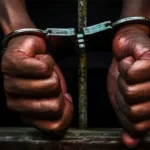JOHANNESBURG: The murder of renowned South African rapper Kiernan “AKA” Forbes has sent shockwaves through the nation, not only for the loss of a beloved artist but also for the chilling revelation of the cost of his life: a staggering R800 000.
This alleged price tag places Forbes’ murder among the most expensive hits in South Africa’s organised crime history, surpassed only by the killing of Cape Town lawyer Pete Mihalik, which cost a reported R1 million.
While Forbes’ murder stands out for its exorbitant price, experts in organised crime agree that a ready market of hitmen exists, willing to carry out killings for significantly less. The cost of a hit can vary widely, ranging from as little as R5 000 to the million-rand figures seen in high-profile cases.
“It depends on the expertise of the hitman and the status of the target,” explained Rumbi Matamba, researcher and author of the report “The Business of Killing” for the Global Initiative Against Transnational Organised Crime (GI-TOC).
According to GI-TOC data, Forbes’ murder was second only to Mihalik’s in terms of cost. “On average, not a day goes by without an assassination or attempted assassination in South Africa,” Matamba highlighted, painting a grim picture of the country’s violent reality.
The price of a hit, according to Martin Ewi, coordinator for the Institute for Security Studies’ southern Africa’s organised crime observatory, is often determined by the hitman themselves. “R800 000 is one of the highest we’ve seen so far. In the past, we’ve seen hits that are around R150 000 to R200 000.
But it depends on who’s ordering the murder. If the hitman sees that you are rich, that you can pay him R2 million, that’s the amount he will charge you to do his dirty work,” Ewi explained.
The high-profile hits in South Africa over the past decade illustrate this price variation:
- Captain Zwelakhe Ntombela: The police officer was killed at his home, with his wife, Mzo, orchestrating the hit for a reported R300 000.
- Babita Deokaran: The whistleblower was killed outside her home in Johannesburg for an alleged R200 000.
- Nicolaas Heerschap: The father of Hawks officer Niki Heerschap was murdered in Melkbosstrand for R25 000, which was split among five associates.
- Richard Joseph: The tow truck driver was killed in Kuils River for R10 000, allegedly on the instruction of crime boss Nafiz Modack, as a random act to punish the towing company.
- Jade Panayiotou: The woman was kidnapped and murdered in Gqeberha, with her husband, Christopher Panayiotou, paying R70 000 for the hit.
- Senzo Meyiwa: The former Bafana Bafana captain was killed in Vosloorus for an alleged R100 000.
Crime expert Guy Lamb explained that the price of a hit is often influenced by the resources required for its execution. “If it’s a complex job, it will be more expensive. If it needs more people, expertise, and planning, it’s likely to cost more money,” he said, adding that the price could be higher for high-profile victims who travel with bodyguards.
Lamb also highlighted the role of the client’s resources and connections in the criminal underworld. “If the mastermind is looking for a sophisticated hit that sends a message, that’s going to cost,” he explained. He emphasized that the competence of the hitmen and the level of planning involved directly impact the chances of a successful hit.
Lamb pointed out that many hitmen are trained in the taxi industry, where violence is a common tool for resolving disputes. “There is extensive availability of illegal firearms in South Africa and a number of individuals willing to pull the trigger for money,” he added.
The challenge for law enforcement in cracking down on hits is that even if they apprehend the hitmen, the mastermind often remains at large. “It happens, but it’s more the exception than the rule. It’s quite rare that police catch the mastermind,” Lamb said.
Matamba highlighted that targeted killings are most prevalent in the taxi industry, but also linked to politics and organised crime. She added that hits are often carried out for personal reasons, with individuals targeting relatives, often for insurance payouts.
“Based on the data, it seems fairly easy to find a hitman in South Africa because hits are happening quite frequently. It appears that there is a readily available and accessible pool of hitmen who you could approach for a hit,” Matamba said. She explained that these killers are often sourced from organised crime groups, such as gangs or the taxi industry, and sometimes even include law enforcement officials.
Ewi attributed the thriving market for hitmen to the failures of the criminal justice system. “If you have a society where there is very high criminality, those criminals provide that pool of recruitment for assassinations. We all know South Africa has reached that point of criminality. If you need a murderer, you don’t have to look too far,” he said.
“The moment there is impunity, when someone commits a criminal act and is able to go free, you can be sure a lot more criminal acts are to come. Each case that goes unprosecuted, triggers more cases. The moment you allow impunity, for even one case, the multiplier effect is huge,” Ewi concluded, highlighting the urgent need for a strengthened criminal justice system to combat the growing problem of contract killings in South Africa.












